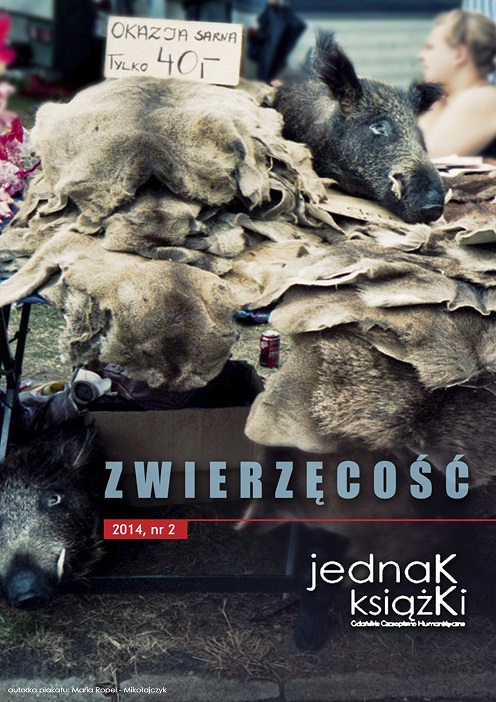Zwierzęta mówią ludzkim głosem : o filozofii człowieczeństwa w powieści Yanna Martela „Życie Pi”
Abstrakt
This article presents a reading of Yann Martel’s Life of Pi in the light of human-animal studies. Abounding with large cultural context and intertextual references, the novel takes up the problem of common images of animals in the eyes of humans. It shows a human facing extreme conditions and his coexistence with animal protagonists, and thus, it indicates the relativism of variously motivated oppositions appearing in the novel: primarily “human-animal” and, consistently, “freedom-enslavement”, “nature-civilization”, “good-evil”, as well as “truth-falsity”, with religion, philosophy, vegetarianism and cannibalism in the background. As a result, the book being primarily about animals, refers to the literary tradition of anthropomorphism, known even from La Fontaine’s Fables, and perversely proves an exposition of the truth about the human, which we are not able to escape. Such an interpretation of Life of Pi indicates the animal as an alter ego of the human, emphasizes human animalistic origins and answers the following questions: in what purpose did the author make use of the animal figure and what role does it play on the way of discovering not animalistic, but rather human identity? Depending on interpretation, the “myth” of the zoo presented in the novel may be refuted or sustained, whereas “humanity” and “animality” may prove merely cliches – it is up to the reader to choose, but as Martel shows, humans will always need to interact with animals in attempt to prove (unsuccessfully) their superiority.

 Uniwersyteckie Czasopisma Naukowe
Uniwersyteckie Czasopisma Naukowe




